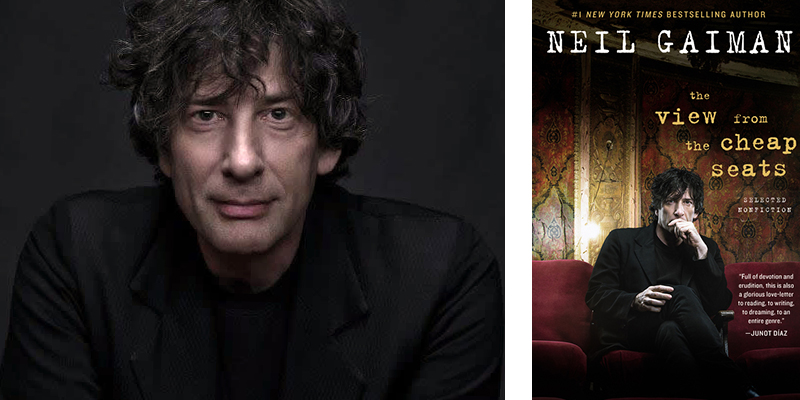

Could you tell me the story of how that happened and how you ended up not only reverting back to your original title for the piece in this book, but also letting that title stand for the entire collection? “The View From the Cheap Seats” was your original title for a piece you wrote for the Guardian, a title they then changed. With Stephen, I could kind of approximate and go back and forth between our voices, but Lou was so hard for me that eventually what I wound up doing was recording all of Lou’s bits in one giant take and then going back and recording my questions separately. Then, suddenly I’m in a recording studio in Santa Fe realizing that now I have to do my best Stephen King impression and my best Lou Reed impression. We picked them because we felt they were about bigger things. We only included two of them: Lou Reed and Stephen King. I didn’t think about recording them when we selected them or else I probably wouldn’t have put them in.

So you’re having to go: “This is a very formal nonfiction voice.” “This is a very informal nonfiction voice.” “This is reportage.” “This is opinion.” And then there was the worst thing in the world: the interviews. On the other hand, it was me deploying different nonfictional voices, which is a bit weird. On the one hand, it wasn’t characters, it was me. You’ve said this audio book was by far the hardest you’ve ever recorded. We spoke by phone while he was in England our conversation has been edited for length and clarity. Published by William Morrow, “ The View From the Cheap Seats” is the first collection of Gaiman’s nonfiction it includes his widely circulated speech “Make Good Art,” a conversation with Stephen King, and his explorations of the Syrian refugee crisis, the Academy Awards and Edgar Allan Poe. In his three-decade career, he has written reviews, interviews, introductions, speeches, articles, and essays on just about every foreseeable topic (and plenty of topics unforeseen as well). His nonfiction is as compelling as his fiction, comics and screenplays. Soon his novels were garnering as much praise and fandom as his comics: “Stardust,” “Coraline,” “The Graveyard Book.” His Hugo- and Nebula Award-winning novel “American Gods,” which is being adapted for the small screen for Starz, has been celebrated as a modern masterpiece.īut fans of Gaiman know that there’s another vocation for which the writer should be known.

In the ‘90s, he was known mostly as the guy who made one of the greatest comics of all time: “The Sandman.” That would be enough for most people, a career-defining feat, but as Dylan had to go electric, Gaiman had to cross over into the literary world. He’s a rock star because he succeeds at just about everything he does. Neil Gaiman is as big a rock star as you’ll find in the literary world, and not just because he’s close friends with actual rock star Tori Amos or married to Amanda Palmer, one half of rock duo the Dresden Dolls.


 0 kommentar(er)
0 kommentar(er)
